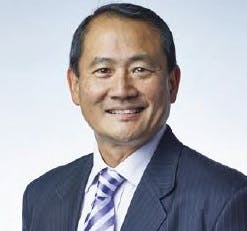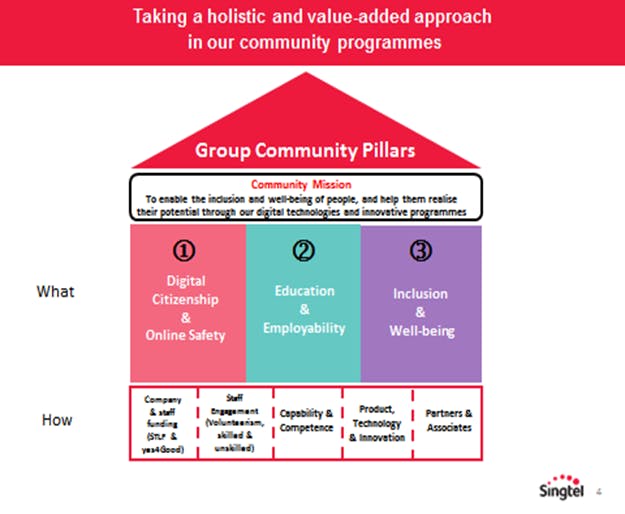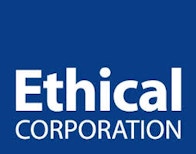Singapore’s leading telecommunications company Singtel Group has a subscriber base of over half a billion mobile customers, second globally only to China Mobile.
The Singapore-listed company takes a holistic approach to sustainability, with CSR being one of the highest drivers of staff engagement in the Group today. Its VP Group CSR and Talent Coach Andrew Buay is responsible for driving the Group’s sustainability strategy and practice across the Group’s strategic pillars of Markeplace, Community, People and Environment, and is also a talent coach in the Optus talent programme.
In this interview with Ethical Corporation, Buay talks about the biggest business trends in 2016, the synergies between CSR and talent development, and his priorities for the year ahead.
What are the big issues to watch in 2016?
Climate change will remain the key sustainability issue in 2016. What will drive this is increasing awareness and information on the carbon impact consumption patterns of rich nations have on developing nations - their carbon footprint which have effectively been ‘outsourced and offshored’, given the global nature of the supply chain.
The socio-economic impact from the Syrian refugee crisis will bring a new dimension to the global human rights issue - we will have to find successful models that support the integration and inclusion of the refugees into receiving communities to ensure long-term social stability and economic productivity.
Amid continued volatility in the global stock markets, 2016 will see the financial and investment sector start to exert visible influence on sustainability issues, as lenders and investment funds shy away from companies with higher perceived ESG risks.
What does it mean to be a VP Group CSR and Talent Coach for Singtel?
I initially took on these newly-created roles that seemed quite independent of each other because I was passionate about them. However, I quickly realised the synergies and interdependencies between the two and could see how they were complementary.

Andrew Buay, VP Group CSR & Talent Coach at Singtel
I also use CSR initiatives as a means to engage and develop our talent and leaders. This year, CSR became THE top scoring staff engagement driver for the Singtel Group, outperforming the benchmark for global high-performing companies in that category.
In your role as VP Group CSR & Talent Coach, what are your priorities for 2016?
In the Marketplace, building on our sustainable supply chain management is the key priority. 2016 will be focused on working through Group Procurement to execute on the roadmap, undertaking specific supply chain assurance reviews, as well as building the systems to automate some of our risk management processes in the supply chain.
In our Community pillar, it is about building scale and continued innovation in the strategic community programmes we focus on, such as Digital Citizenship, employment and employability for vulnerable communities.
In our People pillar, the key focus for me is to strengthen our diversity agenda and support for disability employment and Women in Leadership.
In the Environment space, the priorities include establishing our carbon intensity reduction strategy and executing our network adaptation and resilience planning, following our climate change adaptation review conducted in 2015.
Where do sustainability and CSR activities sit at Singtel and in what departments are they integrated the most?
Functionally, I sit within the HR department because CSR historically had a strong staff community engagement element, and also because of my separate talent coach role. We now work closely with and have key dependencies in almost all parts of the organisation. Our Singtel Management Committee, which comprises all our key executives from across the Group, now has oversight of the broader sustainability strategy and agenda.
Singtel has adopted a strategic and holistic approach to community engagement in Singapore versus a largely philanthropic approach in Asia. Why has Singtel gone down that route and can you provide an example of such activities?
Corporate philanthropy has a ‘budget ceiling’ for most companies. Strategic community engagement, on the other hand, presents more opportunities when it is in areas of the community that relate to or can impact your core business.
We think about how we can holistically leverage as many aspects of our business capability and partnerships, and develop the ecosystems to add value to the cause (Figure 1).

Figure 1: Singtel’s Group Community Pillars
From research conducted within our community, we’ve been told sustainability as a source of competitive advantage is the biggest opportunity in the next five years – would you agree with this, and what does Singtel do in this space?
Yes and No.
‘Yes’, because sustainability, when done right, supports the long-term success of the business, and also builds the brand and reputation. It also generates business opportunities when approached strategically and not solely as risk management.
‘No’, because being obsessed with sustainability as a competitive advantage in itself will also undermine collaboration. Many of our CSR and sustainability initiatives have been implemented by connecting the ecosystem of partners with like-minded individuals and companies – e.g. we are founding members in initiatives like Singapore Business Network on Disability, Australian Business Community Network, Australian Business Roundtable for Disaster Resilience and Safer Communities, and Telco Together Foundation.
Where do you think Singtel can make the biggest impact and have Singtel achieved that yet?
Our biggest opportunity is in leveraging our products and technologies, partnerships and capabilities to solve sustainability issues. We have only scratched the surface in terms of the opportunity and impact.
But if you think of the telco industry that we are in – it’s been a key driver of economic and social development. Since the 1990s, Singtel has invested significantly in Asia’s developing markets. We did this even during the economic downturns and Asian Financial Crisis, which saw many US and European telcos pull investments out of Asia.
Today, when businesses outsource their operations to our managed ICT services such as cloud or data centre services, we enable their operational and energy efficiencies through shared infrastructure.
“
Being obsessed with sustainability as a competitive advantage in itself will undermine collaboration.
Andrew Buay, VP Group CSR & Talent Coach, Singtel
The positive impact of our industry on sustainability-related issues is hence probably a lot wider than we currently realise or can even track.
Is Singtel engaging in any of the United Nations Sustainable Development Goals?
Before the SDGs were widely publicised, Singtel was the first Asia-Pacific company to commit to becoming a member of IMPACT 2030.
We have also done our mappings to see what already aligns with the Global Goals and what more we can do. Across our Group of companies, we have the ability to make a difference in areas such as Climate Resilience and Adaptation, Smart/Sustainable Cities, Education and Employability, to name a few.
What do you see as the biggest challenge in working towards this goal?
The challenge is not whether a company is doing anything in context of the goals, but what more it can do and how significant an impact it can have by contributing to that goal.
Another challenge is how all stakeholders collaborate and synergise their efforts to get a holistic and meaningful outcome.
COP21 agreement – a success or did you wish for more?
My view on this is mixed. Governments mainly committed to what they were already prepared to commit to, not what was necessarily needed to address the 2 degree Celsius target.
Many key developing nations were visibly absent in their commitments, and a framework for developed economies to help address the issue for poorer nations was not established. COP 21 could either be seen as a divide-and-conquer approach to the issue of global climate change, or it could also result in more silo mentality as governments now focus inward to achieve their targets and commitment, and leave other nations to sort out their ‘share’ of the problem.
However, COP 21 still represents a milestone in the global alignment and awareness that it has raised on the topic, and the reality check that we still have a huge gap. The ‘unconscious bias’ of climate change has been overcome through COP21, and greater awareness and acceptance of the problem will eventually lead to a better resolution.
Corporation tax – higher or lower?
I am not an expert in this area, and it’s hard to generalise since it’s relative to where the current levels of corporate tax are for each country.
However, in the context of corporate tax as a government source of funding to address sustainability issues, my personal view is lower is better.
What I think works better is a model that has a government co-invest with the private sector or NGOs to resolve ESG issues, or a tax incentive structure that attracts private-sector investment in ESG issues for their country. This way, the burden of such issues are co-shared rather than just transferred to the government through higher corporate taxes.
A government to watch on sustainability?
Closer to home, what the Singapore government has been/is doing and the model of PPP (Public – Private – People) collaboration is something to watch.
The example I gave earlier of low corporate taxes combined with strong matching grants and tax breaks for social and community investment is something I have not seen elsewhere to the same extent.
The full interview with Andrew Buay is available here. He will be speaking about employee engagement and using CSR as a competitive advantage at the Responsible Business Summit Asia on 17 to 18 May at Novotel Clarke Quay, Singapore. To get a full run-down of the event, click here.











